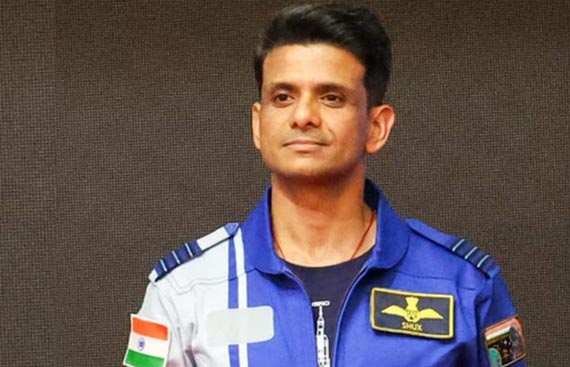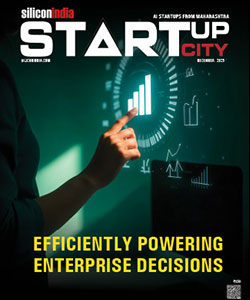Weather Delays Historic ISS Flight of Indian Astronaut Shubhanshu Shukla
By
siliconindia | Tuesday, 10 June 2025, 10:00:47 AM IST

- Shubhanshu Shukla’s ISS mission rescheduled to June 11 due to poor weather.
- Shukla to become the first Indian on the ISS and second Indian in space.
- Will conduct ISRO-DBT-NASA experiments on edible microalgae in microgravity.
The much-anticipated launch of Indian Air Force Group Captain Shubhanshu Shukla’s historic mission to the International Space Station (ISS) has been delayed once again due to adverse weather conditions, the Indian Space Research Organisation (ISRO) confirmed on Monday.
Initially scheduled for May 29, the Axiom-4 mission was postponed to June 8 and then June 10. It is now rescheduled for June 11 at 8 a.m. ET (5:30 p.m. IST) from NASA’s Kennedy Space Centre in Florida. The launch will take place aboard a SpaceX Falcon 9 rocket operated by US-based Axiom Space.
“Due to weather conditions, the launch of Axiom-4 mission for sending Indian Gaganyatri to International Space Station is postponed from 10th June 2025 to 11th June 2025”, ISRO Chairman Dr. V. Narayanan announced on social media platform X. SpaceX also confirmed the delay citing 'high winds in the ascent corridor', and noted a backup launch window is available on June 12 at 7:37 a.m. ET.
Once launched, Shubhanshu Shukla will become the first Indian astronaut aboard the ISS and the second Indian to enter space, following Rakesh Sharma’s historic flight to the Soviet Salyut 7 space station in 1984. The news has brought immense pride to Shukla’s family in Lucknow. “Our son has done something that brings pride in itself… We are feeling immensely proud”, said his mother.
Shukla will serve as the pilot for the Axiom-4 mission under the command of American astronaut Peggy Whitson. The international crew includes mission specialists Slawosz Uznanski-Wisniewski from Poland and Tibor Kapu from Hungary.
During his stay aboard the ISS, Shukla is expected to conduct groundbreaking experiments focused on food and nutrition. Developed jointly by ISRO and the Department of Biotechnology (DBT), with support from NASA, these experiments aim to explore the viability of edible microalgae in microgravity. The research will investigate how space radiation and zero-gravity environments impact the growth and biochemical composition of algae, focusing on transcriptomes, proteomes, and metabolomes paving the way for future long-duration space missions and space-based life support systems.
Read More News :
NIIF Emerges as Key Capital Mobiliser for India's Infrastructure: FM Sitharaman
Piyush Goyal Calls China's Rare Earth Curbs a 'Wake-Up Call' for India's Supply Chain Shift


.jpg)
